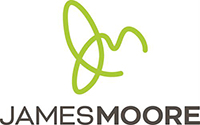Contributed by: James Moore.
We’ve all heard it: companies boasting about the closeness of their employees and likening their relationships with staff as “family.” It sounds like a great concept, but is a family culture the one your organization should really embrace? It turns out embracing a community culture may be the better bet.
The point of organizational culture is to establish your company’s purpose and personality. It defines who the company is, what motivates it, and how it wants to be viewed by customers and employees.
Companies often use family appeal to attract talent. The opening statement to the handbook may even state, “Welcome to the family!”
Family Culture
Ideally, a family culture should imply a closeness and tight bond internally. However, it can also produce rigidity within the organization. The expectation to fit in with the family creates a level of dependency on employees who conform. For those employees who do not fit, a sense of isolation can quickly develop.
Community Culture
A community culture relies on the alignment of both employee and organizational values. It incorporates multiple viewpoints and provides support and a holistic approach to staff management. There is a clear definition of roles and expectations while maintaining healthy boundaries.
Conversely, a family culture can unintentionally create a toxic allegiance. Loyalty to an organization can be a very attractive attribute for an employee to exhibit. But when the employer begins to set “all in” or “do anything for the “family” expectations, employees can quickly become resentful or even feel exploited.
So what is the easiest way to adopt and develop a community culture? Here are four effective steps you can take:
- Be true to your values.
Identify, embrace and live out your core values in everything you do. Ensure your employees understand your company values and buys into them. When recruiting and hiring new staff, look for people who will understand and champion your values as well. - Create an environment of belonging within boundaries.
Belonging within boundaries means being a natural part of the group without forcibly feeling as though one has to conform.
Create an environment that engages with your employees and encourages their involvement without requiring it. Employees who feel simultaneously impactful and respected are more likely to have a sense of belonging in your community culture. And that means they’re more likely to stay. - Emphasize purpose.
Employees who see their job as more than just a task or a list of duties each day are highly motivated. Having a sense of purpose and understanding how they ultimately contribute to the bigger picture encourages them to be highly vested with their workplace. - Foster and encourage positivity.
Share your successes and recognize the people who had a part in it. If an employee exhibited a stellar characteristic of your culture, let them know it’s appreciated. It’s amazing how much a “way to go!” can make an employee feel rewarded and appreciated.
Rewarding individuals for their efforts can incentivize others to want the same. If negativity or issues arise, encourage managers to have tough (but professional) conversations that allow employees to vent and encourage them to be a part of the resolution. Turning a negative situation into a positive outcome gives employees faith in the process.
“A thoughtful community culture offers the same benefit as a family culture but with greater inclusivity and flexibility. Your HR consultant can be a great resource if you have questions. In the meantime, following these steps will help you establish a culture that attracts the talent you need – and encourage them to stay!”
Katie howard – PHR, Senior Human Resources Consultant, james moore
Disclaimer
All content provided in this article is for informational purposes only. Matters discussed in this article are subject to change. For up-to-date information on this subject please contact a James Moore professional. James Moore will not be held responsible for any claim, loss, damage or inconvenience caused as a result of any information within these pages or any information accessed through this site.
Contributed by:

James Moore & Co – CPA Tax Accountant
5931 NW 1st Place
Gainesville, FL 32607
352-577-8990
https://www.jmco.com
Email: gnv@jmco.com




